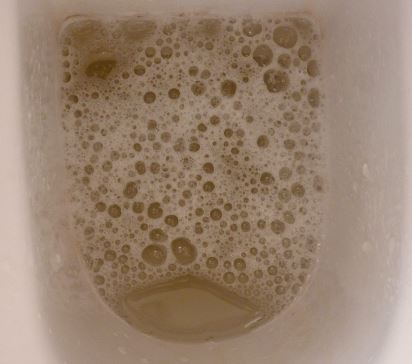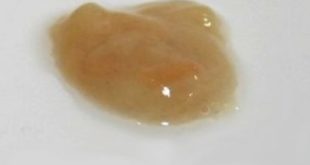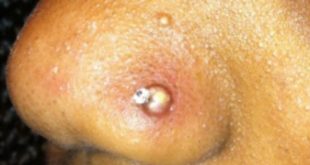Cloudy urine, or bubbles in urine can mean you have kidney stones, diabetes, a UTI or even no serious health condition. You are more likely to experience foamy urine in the morning than in the evening. Bothe men and women can get cloudy or bubbly urine symptom, which may be accompanied by bad odor or smell. Here are the causes and treatment of foamy urine.
What does it mean when your urine is cloudy?
Contents
There is no any given perfect urine. The quality and the quantity of the urine might change based on the health as well as the lifestyle. But, it’s very much vital to understand what is usual for you. This particular way, you can then be able to relay any serious or even strange changes to the doctor.

Urine is a vital diagnostic tool since the start of use of medicine. The color, frequency, density and smell of the urine is able to reveal important information about your health. It may also indicate if you are well hydrated, taking proper medication, vitamins in your body or even have an infection.
If you don’t observe a color, you might also be taking too much water or even coffee. Deeper shades of the yellow and also an amber may imply that you are dehydrated. The color of the urine may range from fully clear to gold, and may include unusual colors such as being red and blue.
Here are some of the clues on what different colors might indicate:
1. Blue-green urine
May be due to medications like laxatives, chemotherapy, or even the vitamins. If you are not taking any of the meds, and you continue to observe the color for more than 10 days, call the doctor so as to discuss.
2. Bright yellow or orange urine
May imply that you’ve consumed too much of vitamin C, beets, or even all other foods that are in the orange family. Some of the medications might turn the urine this color also.
3. Dark orange or brown
Urine is a very big cause for concern. This might imply that you have bile in the urine or even a problem with the liver.
4. Pink or red urine
May show that you’ve taken red-tinted food. On a very serious note, this may also be an indication of blood in the urine. Bloody urine might imply internal injury, kidney issues, or even the cancer.
Cloudy urine has hence been found to indicate the presence of the phosphates, which might be a precursor to the kidney stones. Cloudiness may also imply an infection. If cloudiness worsens with time and you have a burning or even an urgency, make sure that you see a doctor.
Cloudy urine causes
The following are the causes of cloudy, bubbly or foamy urine.
1. Diabetes
Cloudy urine and the diabetes are said by many as being directly related. Although this might be true in some other instances, they do not always have a direct connection. While the abnormal urine color is not a symptom of the diabetes, cloudy urine causes are likely because of either other several diabetic issues, or any other health related instances.
These include urinary tract infections, sexually transmitted diseases, and many more. Even so, the abnormal urine color, whether it is dark colored, appears foamy, or cloudy, is often due to the numerous symptoms of diabetes. For instance, cloudy urine and the diabetes may be due to proteinuria, which is a symptom of the chronic kidney disease which is normally brought about by diabetes.
Excessive thirst and increased urination (polyuria) are classic diabetes symptoms.
When you have diabetes, excess sugar (also known as the glucose) builds up in the blood. The kidneys are then forced to work more so as to filter and also absorb any excess sugar.
If the kidneys are not able to keep up, then the excess sugar is removed through the urine, dragging along the fluids that came from the tissues. This triggers a frequent urination, which might leave a person dehydrated. As you drink more fluids so as to quench thirst, then you’ll urinate even more.
2. UTI
Normal urine is clear and contains a straw-yellow color. When it does not have the characteristic clear appearance, it is normally referred to as the cloudy, turbid, or even a foamy urine. Cloudy or the foamy urine can happen occasionally because of the mild dehydration; when it happens in the absence of the symptoms and disappears rapidly, it is normally of very little consequence.
Some of the conditions may lead to an excess protein or even the crystalline substances that are in the urine, leading to persistently appearing as cloudy or even foamy. Infections that are anywhere in the urinary tract, including the bladder or even the urethra, in both men as well as the women, can lead to pus to appear in the urine, therefore giving it a very cloudy appearance.
Additionally, most of the several causes of blood in urine may lead to a cloudy appearance to the urine because of the presence of blood. In the women who have vaginitis (such as yeast vaginitis or sexually transmitted diseases such as the gonorrhea), the vaginal discharge, which if present, might sometimes contaminate the sample of the urine, making the urine to appear very cloudy.
3. Kidney stones
Kidney stones are able to produce symptoms like back pain and also the cloudy urine especially in the morning but also any other time of the day.
Often there are no symptoms that are related to a kidney stone until it begins to move and also blocks the flow of urine.
When this occurs, symptoms might include:
- Waves of the sharp pain that are in the back and side or even lower abdomen. The pain might move toward the groin.
- Inability to comfortable position. People who have kidney stones normally pace the floor.
- Nausea and also vomiting with some ongoing flank pain
- Blood that is found in the urine
- The very frequent urge for a person to urinate
Sometimes an infection is available, and might lead to the additional symptoms like:
- Fever and also the chills
- Pain during urination
- Cloudy or even a foul-smelling urine
Cloudy urine in the morning
Having cloudy urine is common and, in most of the cases, it is no reason for any alarm. But, it just may be an indication of an underlying health condition.
Healthy urine is normally clear and very light yellow in its color. Unhealthy urine may be very cloudy, hazy, or even milky looking. This may happen for several different reasons which are:
- Sexually transmitted diseases
- dehydration
- Diseases that affect other body systems together with the urinary tract.
While the cloudy urine among men does occur, women get it often as their bodies lend itself to the E. coli that forms in the bladder.
In the majority of this situations, cloudy urine is an indication of the urinary tract infection. Urinary tract infections are one of the most common type of infection that people get.
Cloudy urine that has some odor is very much possible. This might be much alarming and can occur in all of the age groups. Most people have cloudy urine that has no pain, while others may feel a burning sensation at the times when they urinate.
All of the symptoms you may have along with the cloudy appearance of the urine is to be described in to a physician for proper diagnosis and also the treatment.
Cloudy smelly urine
People who have a high blood ketone levels that are normally on a low-carb diet and also those who have much difficulty controlling the diabetes may have urine that has an odor. With the ketone, a sweet, acetone-like odor that is in the urine may be detected.
Cloudy urine that has odor can also be an indication of dehydration, more especially if it smells the same as ammonia. If you have a tract infection or when pregnant, the cloudy urine may also be foul smelling.
Keep also in mind that the normal looking urine might also have an unusual smell from period to another. This is because of the food consumption. Beer, and also the coffee are some examples of the foods that give urine a very strong odor.
Cloudy urine men
It’s known that men and women are made very much different, so how the urine becomes much cloudy for each of them is normally different. After sex, some of the sperm are able to remain in the urethra and lead to bubbles that forms the froth on the surface of the urine that is in the toilet bowl when a person is urinating.
In a very healthy male, the sperm, finds its way into the urethra, normally clears itself within few minutes.
An enlarged prostate, prostate cancer, epididymitis, and also the sexually transmitted diseases are some of the reasons for a cloudy urine amongst the men.
Women can have cloudy urine during pregnancy, but also because of the sexually transmitted diseases, or even the endometriosis, which is the uterine tissue that is in the bladder.
Most of the doctors indicate that both men and women much tend to assume a tract infection is what they have when the symptoms first come by. It is crucial to be well assessed so as to determine if it is the infection or something else.
Bubbly or foamy urine in female
The causes of bubbles in urine can be a bit different in women compared to women. During pregnancy for example, some women may experience foamy urine. Here’s what could be causing cloudy urine in women.
Bubbles during Pregnancy
During the pregnancy period, some of the women have kidney enlargement. This kind of enlargement can lead to urine that have bubbles. Also, during the pregnancy a woman’s kidneys filter a higher amounts of the amino acids.
When the amount of the amino acids exceeds the renal tubules ability to absorb all the acids, protein is able to escape much into the urine. Protein that is in the urine can lead to the urine to bubble.
Bubbles due to Mild Dehydration
Mild dehydration can lead to the bubbles in urine. This happens since mild dehydration leads to the urine to concentrate and thus highly concentrated tends to thus bubble.
Since the people who have diabetes are at a higher risk for dehydration, they might have bubbles in urine often than those who do without. Maintaining enough hydration levels can reverse the finding if the underlying cause is mild dehydration.
Bubbles during Rapid Urination
Urinating rapidly may lead to bubbles in urine. Dehydration can lead to the people to urinate a bit rapidly. If the bubbles in urine are because of dehydration, increasing the level of the hydration can assist to reverse the finding.
Abnormal Conditions of Bubbles in Urine
There are also several times when the bubbles that are in urine are an indication of medical disorders like the kidney disease or even the tract infections.
Proteinuria
Proteinuria can result in the bubbles in the urine that produces a foamy appearance. Infrequent bubbles can happen after ingesting larger amounts of proteins that are found in the protein drinks, muscle protein gaining supplements, or even a large meal of fish.
When normal amount of protein is ingested in excess then the healthy body is able to remove the extra by doing away with it through urine. But when protein is ingested in excess amounts, then the kidneys can have a very difficult time removing the excess waste.
However, frequent bubbles that are in urine could be a serious condition where the kidneys fail to function as required or even a medical condition that interferes with the body’s ability to metabolize the protein.
Urinary Tract Infections
This infections can also make the urine to bubble. In this case, the bubbles that come from microorganisms that are entering into a sterile urinary tract that normally releases a gas, which leads to in bubbles. The bubbles that are found during the urination are normally accompanied by pain or even a burning sensation.
This given condition requires to be assessed by a doctor who can order a urinalysis test so as to find out whether an infection is present. If a diagnosis of an infection is made then the bubbles that are in urine should disappear after it is treated with antibiotics.
Vesicocolic Fistula
A fistula is a connection that exists between two organs or the blood vessels that do not exist. A vesicocolic fistula can then form between the bladder and also the colon and is commonly found in men than amongst the women by about a 3:1 ratio.
When the bubbles form in the urine because of a vesicocolic fistula it is known as the pneumaturia. In this case, the bubbles are normally introduced into the urine when the bladder is inflamed or swollen and the surrounding fluid then builds up under the skin.
The bubbles that are contained in the fluid are released in the urine. In this particular case, you should consult the physician so as to uncover the exact reason behind the bubble
Cloudy urine during pregnancy
Cloudy urine that occurs during pregnancy can be because of various factors. For instance, it can just be an indication that the hormones are changing. This normally happens early in the pregnancy. A sudden change in diet during pregnancy might have an impact on the urine.
Cloudy urine in early pregnancy can be a sign of a urinary tract infection. Pregnant women usually urinate more, and it might be a case of not urinating frequently very much enough. It is also possible that discharge, which is very common during the pregnancy, mixes with the urine, hence it’s the cloudy appearance.
Cloudy urine in the pregnancy become an issue if it is much related to the proteinuria. This occurs when urine has a high protein concentrations and is an indication of preeclampsia.
About four percent of the women usually develop the urinary tract infections when they are pregnant. Abdominal discomfort, including a slight pain that is in the pelvic region, might by an indication of a UTI. Treatment that is under very close supervision of a doctor is important so as to clear up the infection.
UTI
Urinary tract infections, can make the urine to be cloudy. UTIs can be caused by several reasons, including not urinating frequently as required; it’s very much important to always go when you are required to—especially when you’re very pregnant. Once you are diagnosed, UTIs can be easily treated using the medication.
Proteinuria
Although the condition is common during the second and also the third trimester, it sometimes shows up during the first. Proteinuria happens when the urine has a high protein concentrations.
Proteinuria can be an early indication of preeclampsia when it is accompanied by a high blood pressure; this is a serious prenatal condition that requires a close monitoring for the period of pregnancy.
Hormones
The ever increasing levels of hormones may lead to the cloudy urine. The body starts to produce the pregnancy hormone after the placenta forms. This particular hormone’s levels increase every 2-3 days until about the 12thweek, and then they level off.
Some of the hormones will move into the urine and make it to appear cloudy. If the hormones are the cause of the urinary change, it is supposed to resolve itself at the end of the first trimester.
Certain Foods
Abrupt dietary changes are able to trigger the cloudy urine pregnancy issues. Other foods, which includes the dairy, orange juice, and also the asparagus may also lead to the cloudy urine. If you suspect that foods are the culprit, then keeping a food diary and noting any of the urinary changes might be a perfect way to track if what you eat may be leading to cloudy urine.
Dehydration
Not drinking enough amount of water—about 10 glasses a day—might lead to cloudy urine as well. Dehydration normally leads urine to be very dark in addition to appearing cloudy. This cause is easily rectified; but, sometimes the underlying medical conditions can lead to dehydration, which might need medical intervention.
Medications
some of the medications may also alter the appearance of urine. It’s a perfect idea to read all the fine print if you’re taking any kind of medications so as to see if this might be a side effect. You should alert the doctor to any medications that you’re currently taking so he can be on the lookout for the side effects.
Treatment for cloudy or foamy urine
Staying hydrated and also going quickly after feeling the need are the main methods that can be used to prevent any excess bubbles that are forming in the urine.
In the case of an infection, drinking lots of water and also taking of antibiotics are crucial for flushing out the bacteria that are in the urinary tract. A vesicocolic fistula might need surgery so as to resolve but about half end up closing on their own if given time, so the doctor may also watch first.
Preeclampsia is complicated as the only cure is through giving birth, but it might be a bit early in the pregnancy for the fetus to survive. If this happens, then it will be important to visit the doctor regularly to more carefully monitor the symptoms until the pregnancy advances.
You might also be given blood pressure medications as well as the corticosteroids so as to improve the platelet function, and in extreme cases, then the anticonvulsant drugs might be required so as to prevent the seizures, an indication that the condition has advanced to eclampsia.
When to see a doctor
Call the doctor about the Kidney Stones If:
- You suspect of having a kidney stone
- You’re are having waves of sharp pain in the back, abdomen, or even the groin
- You’re are having pain or difficulty with urination
- You notice some amount of blood in the urine
Further references;
- What it Means When You Have Bubbles in Your Urine:
- What Your Pee Is Telling You:
- Cloudy Urine and Diabetes: Myths and Facts:
- Diabetes symptoms: When diabetes symptoms are a concern:
- Understanding Kidney Stones – Symptoms:
- Cloudy urine: Causes, symptoms, and treatments:
- Cloudy Urine: Pregnancy Issue or not During My Early Pregnancy:


